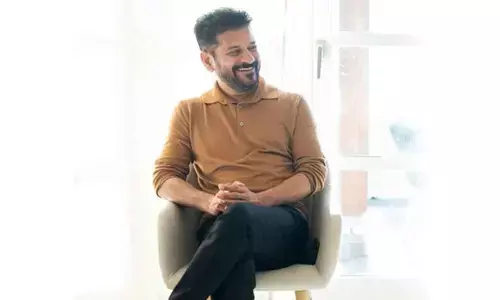MyVoice: Views of our readers 5th August 2020

MyVoice: Views of our readers 13th October 2020
The new date of the NEET 2020 exam is September 13 and JEE Advanced is September 27 which is rescheduled because of the outbreak of pandemic.
Knowledge matters, not grades
The new date of the NEET 2020 exam is September 13 and JEE Advanced is September 27 which is rescheduled because of the outbreak of pandemic. There is just one month left for the exams now. Students are busy with their last-minute revisions. Parents and teachers are struggling hard and even anxious about how their child will perform. These feelings are resulting in a lot of stress among the children. Apart from these kinds of pressures, proving one's own worth is really what students are bothered about. Mental health of the child during this time needs to be supervised. If a student really learns the content and then uses it for the exams and even if he does not do the best in the exam, it is the system which is failing not the student. So, students must be aware that knowledge will come handy at some point in life. Parents and teachers must make sure their children are enjoying the learning, being organised and systematic. Society must create the environment for the students that there is a beautiful world waiting to be explored by all equally. The need is to open our eyes and celebrate whatever results they achieve tomorrow.
P Koushik Vijay, Warangal
Prevent crowd gathering in Ayodhya
Apropos the news 'Only PM, 4 others on stage' (dated August 4), it is good that social distancing norms are being strictly followed at the stone laying ceremony in Ayodhya. Though it is a historic day and given the normal circumstances, crowds could have been in millions. It is good that the government is taking all precautions to avoid crowding on the stage but it is equally important that the government must ensure that there is no large gathering there. As the reports suggest, a large number of people are reaching out to Ayodhya on this historic day. If this happens, whether the stage is crowded or not, the outcome shall be disastrous. It is very important that crowds are stopped at its origin and not at the destination. if Markaj gathering in Delhi proved disastrous, Ayodhya event has larger potential to be even more disastrous, if not checked in time.
Bholey Bhardwaj, Mumbai
Stop police atrocities on civilians
This refers to the reports about increasing police atrocities against Dalit in Andhra Pradesh, Tamil Nadu and several northern States. There is an urgent need to establish an independent investigative body to look into the cases of police abuse. Currently, there exists a complex procedure regarding the investigation of complaints against police officials. Police officers are generally not inclined to investigate their colleagues and peers. Data released by the National Crime Records Bureau reveal that in 2018 none of the 89 cases of custodial violence could yield a conviction. Under such circumstances, it is extremely difficult to maintain the accountability of police towards civilians. In addition to the independent complaints body, a civilian review board is also necessary to oversee the functioning of the police. Collaboration between community and police must also be encouraged to facilitate efficacious policing.
Further, police officials need to be trained in order to reduce systemic bias and transform the police into a professional organisation committed to serving civilians. Excessive use of force by police officers is of great concern. Quality education and training would prevent officers from employing disproportionate use of force. Experts have also suggested simulation training as an effective tool. A number of simulators are available, focusing on issues like excessive use of force, implicit bias, ethical decision-making and community policing. There is also scenario-based training which employs real-life situations to record the responses of participants. The scenario can be based on discussions among participants. Simulation and scenario-based training must be implemented with a clear idea about the objective of police training. These training modules would definitely help reduce police abuse.
Meghna S, Hyderabad














